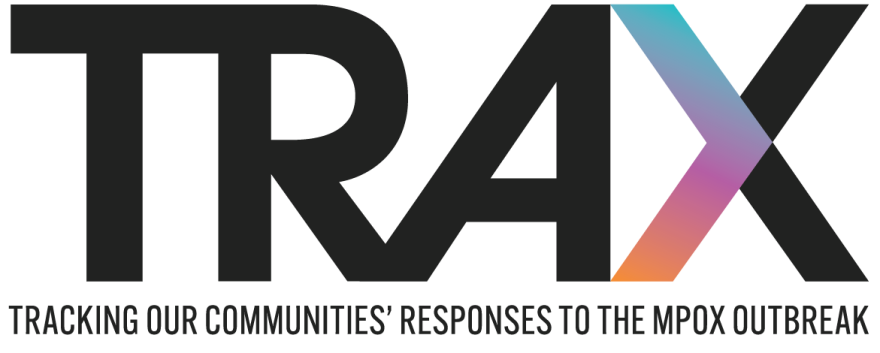In May 2022, a large outbreak of mpox has spread to many countries around the world, mostly in gay, bisexual, and other men who have sex with men. In Australia, a vaccine is being targeted towards those at risk. The research study aims to investigate mpox vaccine uptake and real world effectiveness in Australia.
The TraX study tackles the urgent challenge of understanding mpox vaccine uptake and its real-world effectiveness among high-risk communities during a global health crisis. With the deployment of vaccines under emergency conditions, there's a significant knowledge gap regarding how effectively these vaccines prevent mpox in practical settings. This research seeks to illuminate the actual impact of vaccination campaigns, aiming to improve public health responses by providing critical insights into vaccine performance and identifying populations at risk of being underserved. Its outcomes are crucial for enhancing vaccination strategies, ensuring equitable vaccine distribution, and ultimately controlling the mpox outbreak.
This entirely online, self-report, observational study will track vaccination rates, assess vaccine effectiveness (both subcutaneous and intra-dermal routes, pre- and post-exposure), and identify predictors of vaccine uptake through weekly questionnaires over 12 to 18 months. Unique for its virtual cohort approach, the project leverages automated, real-time data collection and analysis to rapidly inform public health responses. It will provide critical real-world evidence on vaccine performance, breakthrough infection predictors, and identify under-vaccinated subpopulations, thereby supporting targeted public health interventions. This innovative methodology, focusing on a digitally-engaged recruitment and data collection process, sets the TraX study apart, ensuring timely, impactful insights into vaccine strategy effectiveness during the mpox health emergency.
The TraX project pioneers an innovative, entirely online prospective observational study, employing AI-driven methodology execution to monitor mpox vaccine uptake and efficacy among high-risk individuals in Australia over 12 to 18 months. This unique approach utilises AI to automate participant engagement and data collection through weekly surveys, tailoring the study pathway for each participant based on their unique history. This AI integration enhances the study's efficiency by automating data analysis, ensuring confidentiality, and eliminating manual errors in data handling.
Success is gauged by the study's ability to provide detailed insights into vaccination rates, vaccine effectiveness, and predictors of vaccine acceptance with minimal researcher intervention. By collaborating with health departments and community organisations, and leveraging AI for secure, personalised, and efficient data management, the TraX project sets a new standard for epidemiological research, offering rapid, actionable insights to guide public health responses in the face of the mpox health emergency.
During the reporting period of October 10, 2022, to December 31, 2023, the TraX study saw significant participation with 2,889 Australian participants providing at least one follow-up response. Mpox testing rates remained consistent throughout the period at approximately 1.0% monthly. Importantly, the study revealed a substantial shift in mpox vaccination rates. Initially, 22.2% of participants were unvaccinated, but by December 31, 2023, this number decreased by more than half to 9.2%. Similarly, the proportion of participants receiving only one vaccination fell to 10.7%, while those receiving both vaccinations increased significantly to 80.1% (note that these numbers do not account for study drop-off, so actual rates of uptake may be slightly higher within ). The study commenced with 12 participants reporting prior mpox infection, with no new infections reported throughout the reporting period.
Data from the TraX study has been actively shared through community reports, as well as community and conference presentations.
The TraX study significantly impacts public health by providing pivotal insights into mpox vaccine uptake and efficacy within high-risk populations.
By addressing the critical knowledge gap around the real-world performance of vaccines administered under emergency protocols, this project informs targeted public health interventions and vaccination strategies. Its findings benefit health authorities, policymakers, and community organisations, enabling them to refine their response to the mpox outbreak, ensure equitable vaccine distribution, and tailor health messages to reach under-vaccinated communities effectively. Ultimately, the study enhances our understanding of vaccine effectiveness in preventing mpox, contributing to the broader goal of controlling and eventually eradicating the outbreak, thus protecting community health and well-being on a larger scale.
Co-Principal Investigators
- Dr Mohamed A. Hammoud. Kirby Institute, Faculty of Medicine, UNSW Sydney
- Professor Andrew Grulich. Kirby Institute, Faculty of Medicine, UNSW Sydney
Co-Investigators
- Professor Raina MacIntyre. Kirby Institute, Faculty of Medicine, UNSW Sydney
- Professor Anthony Kelleher. Kirby Institute, Faculty of Medicine, UNSW Sydney
- Professor Rebecca Guy. Kirby Institute, Faculty of Medicine, UNSW Sydney
- Professor Gail Matthews. Kirby Institute, Faculty of Medicine, UNSW Sydney
- Dr Nicholas Medland. Kirby Institute, Faculty of Medicine, UNSW Sydney
- Dr Fengyi (Jeff) Jin. Kirby Institute, Faculty of Medicine, UNSW Sydney
- Dr Benjamin Bavinton. Kirby Institute, Faculty of Medicine, UNSW Sydney
- Professor Martin Holt. Centre for Social Research in Health, UNSW Sydney
- Dr Vincent Cornelisse. Medical Unit Manager, Kirketon Road Centre
- Professor Matthew Law. Kirby Institute, Faculty of Medicine, UNSW Sydney
- Associate Professor Phillip Read, Kirketon Road Centre
- Dr Valerie Delpech, New South Wales Ministry of Health
- Professor Christopher Fairley Director of the Melbourne Sexual Health Centre
- Professor Michelle Giles. Alfred Health, The Royal Women’s Hospital, Monash Health and Western Health.
- Professor Deborah Friedman. Infectious Diseases Physician. Deputy Chief Health Officer, Communicable Disease, Department of Health Victoria.
Associate Investigators
- Dash Heath Paynter, Health Equity Matters
- Dr John Rule, National Association of People with HIV Australia (NAPWHA)
- Jane Costello, Positive Life NSW
- Simon Ruth, Thorne Harbour Health
- Nicolas Parkhill AM, ACON
- Richard Keane, Living Positive Victoria
- Matthew Vaughan, ACON
- James MacGibbon, Centre for Social Research in Health, UNSW Sydney
- Anthony K J Smith, Centre for Social Research in Health, UNSW Sydney.
This project received funding from:
- The NSW Ministry of Health
- The Hon Michael Kirby AC CMG donation
- Professor Raina MacIntyre research support.


